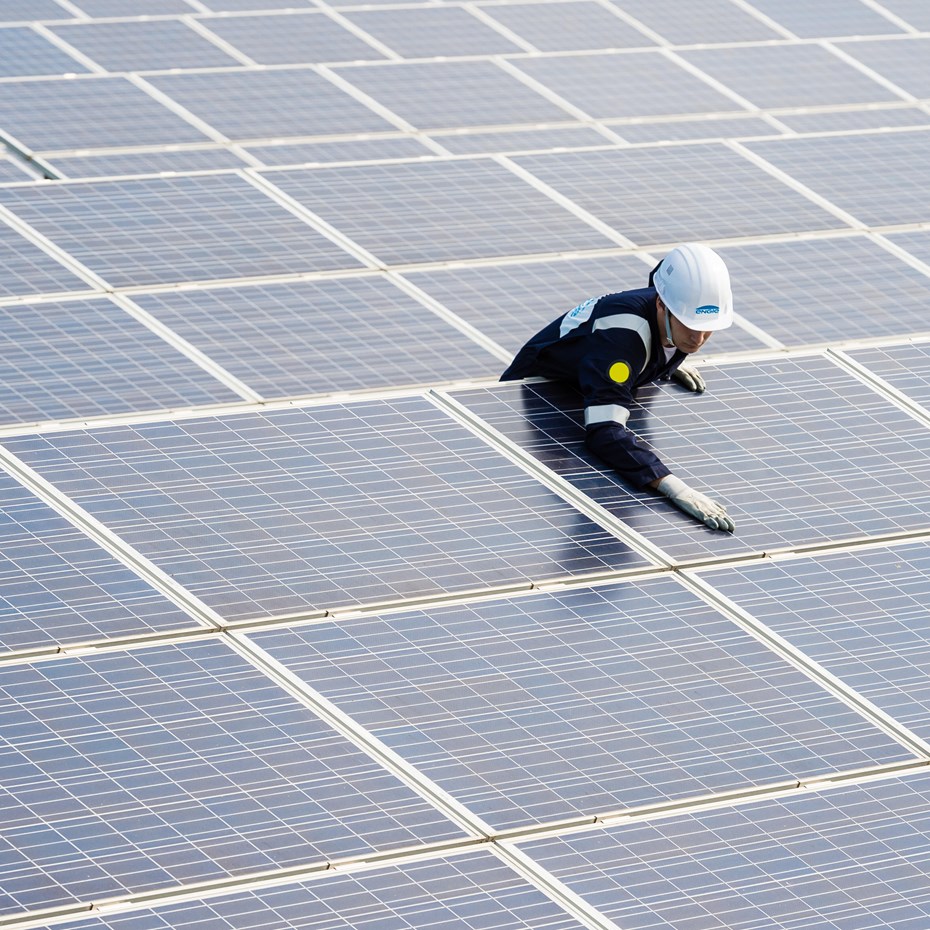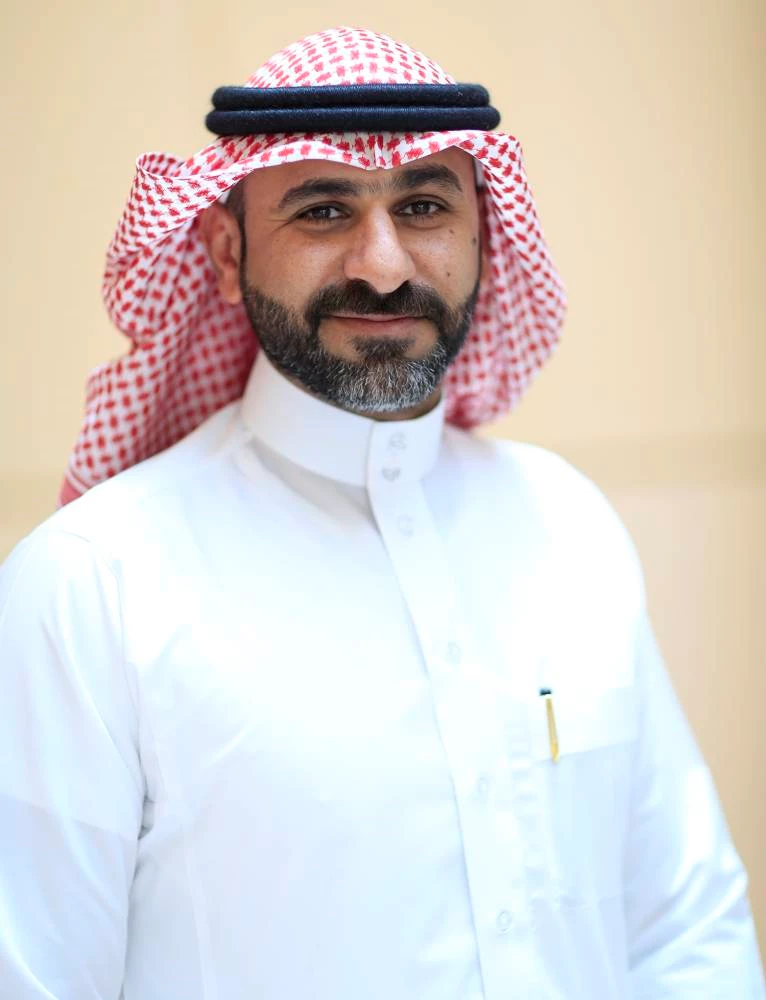ENGIE committed to net zero by 2045
How is ENGIE working in the space of Sustainable Energy in Saudi Arabia?
ENGIE prides itself on being a globally leading low-carbon energy and services solutions provider and a positive energy partner to the Kingdom of Saudi Arabia. As most Saudi projects are now structured as public-private partnerships, ENGIE is both developer and investor in sustainable energy. As a core part of our business, and in line with our Group’s vision, we actively monitor the market for new projects and seek to ensure these projects, regardless of the type, are ESG compliant and fall in line with the Kingdom’s carbon abatement and green initiatives. As a Group, ENGIE is committed to reaching a net zero carbon target by 2045. Our role in the Kingdom is not only to aid in the transition to a sustainable economy through investment and infrastructure development, but also through human capacity building and knowledge transfer, ensuring that the future workforce is well equipped to achieve the ambitious goals of the Vision 2030.
What are the opportunities for renewable energy projects in Saudi Arabia?
The opportunities for renewable energy projects in the Kingdom are endless. Saudi Arabia has already witnessed record low prices for renewable energy in recent years signifying a dramatic decrease in production costs. This, coupled with improved performance and efficiency of renewable energy generation plants has made renewables an attractive sector for the future of the Kingdom. With sustainability at the top of the global agenda, the Kingdom has set ambitious transformational targets focused on increasing renewable energy, offsetting a considerable amount of hydrocarbon production. The Kingdom’s vision realization programs, Saudi G20 Presidency endorsement of the circular carbon economy approach, and the recently announced Green Initiative have set the groundwork for economic diversification and carbon abatement strategies that can be addressed through renewable energy.

How are you working with Middle East governments to help them meet their renewable energy targets?
ENGIE has been a developer and investor in the Kingdom for nearly two decades and is committed to the development of renewable energy projects in the Kingdom. ENGIE is among the top competitors to bid on utility-scale renewable energy projects in the Kingdom, in addition to investing in low-carbon energy production and sustainable desalinisation solutions. Renewable energy is a core sector for ENGIE, and Saudi Arabia provides big opportunities. As a foreign investor, we work closely with our government stakeholders to provide advise that guides regulation for increased public-private partnerships that support the achievement of national targets in the renewable sector. In recent years, we have seen the fall of renewable production costs and increased efficiency trigger an interest in large commercial, industrial rooftop and utility-scale on-site PV plants across the Middle East. ENGIE has developed a legal, technical, financial and commercial framework to address the needs of private companies to ensure they have the financial capabilities and technical knowhow to finance and install renewable projects at competitive prices.
Are you seeing a faster acceleration of the energy transition?
The energy transition of Saudi Arabia and many nations across the globe was well underway ahead of 2020. The coronavirus pandemic caused GDPs to shrink, economic activity to decrease and energy demand to fall as a result of policies implemented to mitigate the spread of the virus. The economic slow-down however, has helped highlight the effects of economic activity on the environment, giving rise to an increased focus on accelerating energy transition policies to address climate change. As we move into the second year of the pandemic, we see energy transition gaining momentum albeit at different rates in different nations as recovery plans are implemented. We see greater acceleration of energy transitions in nations that have adapted regulations to attract the necessary investment in clean infrastructure development. Green investments, low-carbon and digital solutions are all necessary elements fundamental to building more resilient economies.
Energy efficiency and sustainability are both growing trends in Saudi Arabia. As the country transitions towards more diversified and renewable energy sources, this is the time for businesses of all kinds to seriously consider the value of adopting measures that contribute to a more sustainable future for the Kingdom. While the advantages for the environment and air quality are undeniable, there are also tangible benefits to the bottom-line. Energy-efficient buildings and industrial facilities are also more cost-efficient, as utilities bills will also be lowered. Energy transition, or the transformation into becoming a carbon neutral business and nation, is a combination of improved performance while also contributing to the common good.
How is the Middle East region geared up for energy transition? What are the main hurdles you face in the region when it comes to energy transition?
The Middle East has been focused on pursuing energy transition for the past decade, with diversification strategies focused on dedicated clean energy investment to reduce hydrocarbon reliance. All sectors throughout the economies of GCC nations can benefit from a shift toward carbon neutrality in one way or another. Our progress thus far demonstrates that it is possible to shift toward carbon neutrality however more needs to be done to ensure that we are following through to reach our targets.
Developing the appropriate regulations to foster investment in clean energy is just one part of the puzzle. The circular carbon economy approach for example, is sold as an integrated and inclusive approach to transitioning toward more comprehensive, resilient, sustainable, and climate-friendly energy systems that support and enable sustainable development. However, more integrated solutions are needed to facilitate cost-effective transitions, improve the interface between new and existing technologies and achieve the policy ambitions that the circular carbon economy model and other net-zero greenhouse gas emission pathways envision. Greater investment in carbon reduction technologies, bioenergy and other carbon solutions are required to allow for more coordinated efforts to reduce carbon emissions.
Another key to addressing the energy transition in the Middle East Is through sector coupling, whereby clean energy solutions are integrated into existing sectors. The GCC is well position to pioneer the development of the green hydrogen, an important and unharnessed accelerator for the energy transition. With many economies across the Middle East focused on scaling up renewable power generation, green hydrogen presents a natural synergy to continue to accelerate the energy transition. Though the potential for green hydrogen and other carbon reduction technologies remains high, continued collaboration among GCC members is necessary to reduce costs and barriers to entry, increase economies of scale and allow for these new technologies to be impactful in the energy transition.






